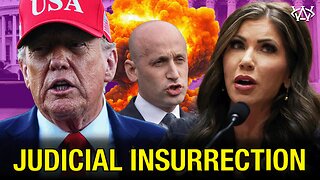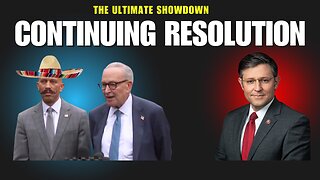Premium Only Content

WHY WE DON'T LEARN THIS IN SCHOOL ?
The teaching of personal finance and money management in schools has indeed been a topic of discussion and debate for many years. The reasons why financial education might not be widely taught in schools can vary and may include:
Curriculum Priorities: Educational systems have limited time and resources to cover a wide range of subjects. As a result, some topics, including personal finance, might not receive as much attention as others deemed more academically essential.
Lack of Expertise: Many educators might not have sufficient expertise in personal finance to effectively teach the subject. This requires specialized knowledge that some teachers might not possess.
Traditional Curriculum: Educational curricula often reflect traditional subjects like math, science, and literature, with less emphasis on practical life skills such as budgeting, investing, and financial planning.
Lack of Standardized Curriculum: There's no universally agreed-upon curriculum for teaching personal finance, which can make it challenging for schools to incorporate it into their programs.
Cultural and Socioeconomic Factors: The perceived importance of financial education can vary depending on cultural norms and economic circumstances. In some cases, there might be less emphasis on formal education in personal finance due to other immediate priorities.
Educational Reform Challenges: Implementing changes in educational curricula often requires significant effort, including adjustments to teacher training, curriculum development, and resources.
Parents' Responsibility: Some argue that teaching financial literacy is primarily the responsibility of parents or guardians, rather than schools.
However, it's important to note that the situation has been changing in recent years. Many advocates and educators recognize the importance of teaching financial literacy to young people. Some schools and organizations have introduced financial education programs, and there's a growing awareness of the need to equip students with practical skills to manage their finances effectively.
It's always a good idea to advocate for well-rounded education that includes life skills such as financial literacy. You can engage with local school boards, educational policymakers, and community organizations to promote the inclusion of financial education in school curricula.
-
 1:57
1:57
420 VGT LIVE 5.0
1 year agoAustralian senator, Malcolm Roberts
244 -
 1:04:23
1:04:23
TheCrucible
4 hours agoThe Extravaganza! EP: 48 (10/06/25)
59.1K6 -
 LIVE
LIVE
Robert Gouveia
1 hour agoTrump Appeals Judicial Takeover!! Churches TARGETED in Info War!
1,243 watching -
 1:38:33
1:38:33
Redacted News
3 hours agoTrump Slams Neyanyahu "Take the Deal, Stop being so F*cking Negative", Hamas responds | Redacted
96.6K115 -
 1:26:52
1:26:52
Kim Iversen
2 hours agoWho Let This Happen??: Israel Now Controls Tik Tok, CBS News, HBO, MTV and More
22.6K34 -
 LIVE
LIVE
Dr Disrespect
7 hours ago🔴LIVE - DR DISRESPECT - BLACK OPS 7 - GIVE ME BACK MY NUKE
1,164 watching -
 1:30:22
1:30:22
Tucker Carlson
6 hours agoEverything You Should Know About Dan Crenshaw, How He Got Rich & Why He’s So in Love With Ukraine
50.8K111 -
 LIVE
LIVE
Wayne Allyn Root | WAR Zone
7 hours agoWatch LIVE: The War Zone Podcast with Wayne Allyn Root
35 watching -
 LIVE
LIVE
Total Horse Channel
3 days agoGypsy Georgia National Fair Show
22 watching -
 LIVE
LIVE
The Amber May Show
2 hours agoThe Shocking Truth Inside the Democrats’ Spending Bill
71 watching
